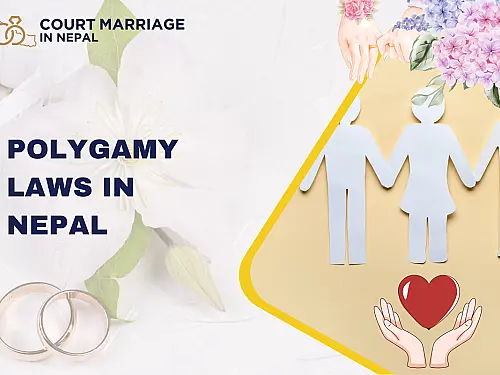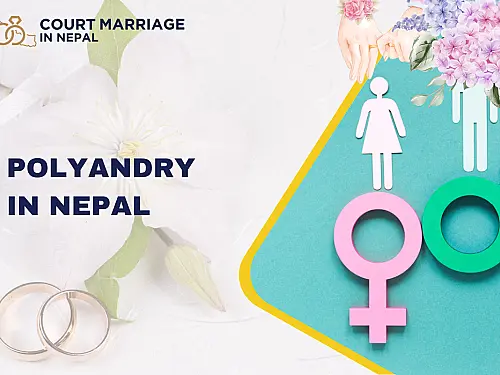Polygamy is the practice of having more than one spouse at the same time. Polygamy can be of two types: polygyny, where a man has more than one wife, and polyandry, where a woman has more than one husband. Polygamy is illegal and punishable in Nepal under the civil and criminal laws. In this article, we will discuss the following topics related to polygamy laws in Nepal:
• The definition and history of polygamy in Nepal
• The legal provisions and penalties for polygamy in Nepal
• The exceptions and conditions for polygamy in Nepal
• The social and legal consequences of polygamy in Nepal
• The challenges and solutions for preventing and addressing polygamy in Nepal
The Definition and History of Polygamy in Nepal
Polygamy is defined as a marriage or marital relationship involving more than two persons at the same time. Polygamy is a generic term that includes both polygyny and polyandry. Polygyny is more common than polyandry in most cultures and societies.
Polygamy has a long history in Nepal, especially among the Hindu communities. Polygamy was practiced by the kings, nobles, priests and wealthy people as a symbol of power, prestige and fertility. Polygamy was also practiced by some ethnic groups such as the Tharus, Limbus, Rais and Magars as a part of their culture and tradition.
Polygamy was not regulated or restricted by any law until the enactment of the National Code (Muluki Ain) in 1854 by Jung Bahadur Rana. The National Code prohibited polygamy for the general public but allowed it for the ruling class with some conditions. The National Code also prescribed punishments for polygamy such as imprisonment, fine, confiscation of property and social boycott.
The National Code was amended several times to make polygamy more difficult and punishable. The current civil and criminal laws of Nepal have completely banned polygamy for all citizens regardless of their religion, caste, ethnicity or gender.
The Legal Provisions and Penalties for Polygamy in Nepal
The legal provisions and penalties for polygamy in Nepal are mainly derived from the National Civil Code 2017 (Muluki Dewani Samhita) and the National Criminal Code 2017 (Muluki Faujdari Samhita). These codes have replaced the previous National Code 1963 (Muluki Ain) which was based on Hindu law.
The National Civil Code 2017 defines marriage as a permanent, inviolable, holy, socio-legal bond that is based on free consent and established to start conjugal and family life between a man and a woman. The code also states that no married person shall conclude another marriage during the subsistence of the marital relationship.
The National Criminal Code 2017 prohibits polygamy as a criminal offense. The code states that no married man shall conclude another marriage during the continuation of the marital relationship. Similarly, no woman shall conclude marriage with a man knowing that he is already married. The code also states that if a married person concludes another marriage or keeps another spouse in violation of the law, such marriage shall be automatically annulled.
The National Criminal Code 2017 prescribes punishments for polygamy as follows:
• If a married man marries another woman during the continuation of the marital relationship, he shall be liable to imprisonment for a term ranging from one year to five years or a fine ranging from ten thousand rupees to fifty thousand rupees or both.
• If a woman marries a man knowing that he is already married, she shall be liable to imprisonment for a term ranging from one year to five years or a fine ranging from ten thousand rupees to fifty thousand rupees or both.
• If a married person keeps another spouse in violation of the law, he or she shall be liable to imprisonment for a term ranging from six months to three years or a fine ranging from five thousand rupees to twenty-five thousand rupees or both.
The Exceptions and Conditions for Polygamy in Nepal
The general rule is that polygamy is illegal and punishable in Nepal. However, there are some exceptions and conditions for polygamy in Nepal. These are:
• Religious minorities: The Constitution of Nepal 2015 guarantees the right to freedom of religion and culture to every citizen. Therefore, some religious minorities such as Muslims, Buddhists and Christians may have their own personal laws regarding marriage and divorce that may allow polygamy under certain circumstances. However, these personal laws must not contradict the fundamental rights and principles of the Constitution and the laws of Nepal.
• Customary practices: The Constitution of Nepal 2015 also recognizes the right to practice and preserve the customary practices of the indigenous and ethnic communities. Therefore, some customary practices of some ethnic groups such as the Tharus, Limbus, Rais and Magars may allow polygamy under certain circumstances. However, these customary practices must not violate the human rights and dignity of the individuals and the laws of Nepal.
• Special circumstances: The National Civil Code 2017 provides some special circumstances under which a married person may conclude another marriage with the consent of the first spouse. These circumstances are:
• If the first spouse has any incurable contagious venereal disease
• If the first spouse is incurable impotent
• If the first spouse is insane
• If the first spouse is infertile
• If the first spouse becomes blind in both eyes
• If the first spouse has been missing for more than three years
• If the first spouse has been sentenced to imprisonment for more than ten years
The Social and Legal Consequences of Polygamy in Nepal
Polygamy has various social and legal consequences in Nepal. Some of the consequences are:
• Social stigma and discrimination: Polygamy is considered as a taboo and a sin in Nepalese society. Polygamous persons and their spouses may face social stigma and discrimination from their families, relatives, communities and society. They may also face ostracism, harassment, violence and abuse from their spouses or co-spouses.
• Legal complications and disputes: Polygamy may create legal complications and disputes in various matters such as marriage registration, divorce, property, inheritance, custody, maintenance, alimony etc. Polygamous persons and their spouses may have to face legal challenges and difficulties in proving their marital status, rights and obligations. They may also have to face litigation and prosecution from their spouses or co-spouses.
• Psychological and emotional problems: Polygamy may cause psychological and emotional problems for polygamous persons and their spouses. They may suffer from stress, anxiety, depression, jealousy, insecurity, guilt, anger, resentment etc. They may also have low self-esteem, self-confidence and self-respect. They may also have poor communication, trust and intimacy with their spouses or co-spouses.
The Challenges and Solutions for Preventing and Addressing Polygamy in Nepal
Polygamy is a complex and sensitive issue that requires multi-dimensional and multi-stakeholder approaches for preventing and addressing it in Nepal. Some of the challenges and solutions are:
• Legal awareness and enforcement: There is a lack of legal awareness and enforcement regarding polygamy laws in Nepal. Many people are unaware of the legal provisions and penalties for polygamy. Many people also evade or violate the law due to corruption, influence or ignorance. Therefore, there is a need to raise legal awareness and enforce polygamy laws effectively in Nepal.
• Social awareness and education: There is a lack of social awareness and education regarding polygamy in Nepal. Many people are influenced by religious, cultural or traditional beliefs that justify or promote polygamy. Many people also lack moral values and ethical standards that discourage or prevent polygamy. Therefore, there is a need to raise social awareness and education regarding polygamy in Nepal.
• Gender equality and empowerment: There is a lack of gender equality and empowerment regarding polygamy in Nepal. Many women are victims of polygamy due to their subordinate status, dependency, vulnerability or coercion. Many women also lack access to education, employment, health, justice or resources that enable them to resist or escape polygamy. Therefore, there is a need to promote gender equality and empowerment regarding polygamy in Nepal.
• Counseling and support: There is a lack of counseling and support regarding polygamy in Nepal. Many polygamous persons and their spouses suffer from various psychological and emotional problems due to polygamy. Many polygamous persons and their spouses also lack access to counseling, guidance, advice or assistance that help them cope with or overcome polygamy. Therefore, there is a need to provide counseling and support regarding polygamy in Nepal.
Conclusion
Polygamy is illegal and punishable in Nepal under the civil and criminal laws. Polygamy has various social and legal consequences for polygamous persons and their spouses. Polygamy also poses various challenges for preventing and addressing it in Nepal.
In this article, we have provided you with some information and guidance on polygamy laws in Nepal. We have discussed the following topics:
• The definition and history of polygamy in Nepal
• The legal provisions and penalties for polygamy in Nepal
• The exceptions and conditions for polygamy in Nepal
• The social and legal consequences of polygamy in Nepal
• The challenges and solutions for preventing and addressing polygamy in Nepal
We hope this article has been helpful
At Court Marriage In Nepal, a registered law firm operating as Court Marriage In Nepal Pvt. Ltd., we specialize exclusively in Court Marriage Nepal. As the first law firm in Nepal dedicated to court marriage services, we assist both Nepali citizens and foreign nationals with the court marriage registration process in Nepal, including complete legal support for court marriage registration for foreign citizens in Nepal. As a trusted marriage firm in Nepal and a licensed law firm in Nepal, we ensure a smooth, lawful, and stress-free experience. Contact us today for confidential assistance with court marriage registration in Nepal.






